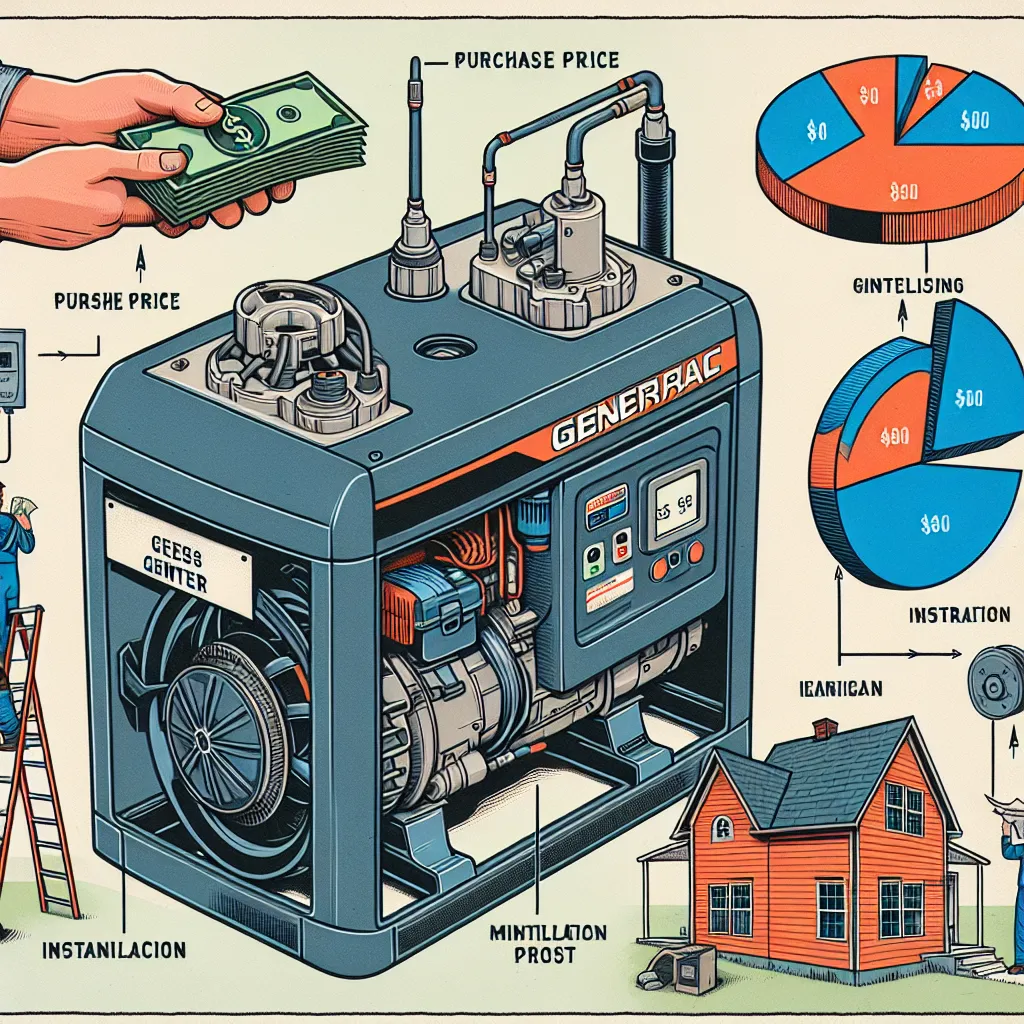Generac Generators Cost: A Comprehensive Guide
Generac Generators Cost: A Comprehensive Guide
Generac generators are renowned for their reliability and durability, making them a popular choice for homeowners and businesses alike. Whether you are looking to power your home during a blackout or need a reliable source of electricity for your business, Generac generators offer a range of options to suit your needs. However, before making a purchase, it is essential to understand the cost factors associated with Generac generators. In this comprehensive guide, we will explore the various factors that contribute to the cost of Generac generators and provide you with the information you need to make an informed decision.
Factors Affecting Generac Generator Costs
1. Generator Size and Power Output:

The size and power output of a Generac generator play a significant role in determining its cost. Generators come in a variety of sizes, typically measured in kilowatts (kW), ranging from small portable units to large standby generators. The larger the generator and the higher its power output, the more expensive it will be. Standby generators, which are designed to power an entire home or business, tend to be more expensive compared to portable generators, which are generally used for smaller-scale power needs.
2. Fuel Type:
Generac generators are available in different fuel types, including diesel, natural gas, and propane. The choice of fuel type can affect the cost of the generator. Diesel generators, for instance, are generally more expensive compared to natural gas or propane generators due to the higher cost of diesel fuel and the complexity of their engine systems.
3. Installation Requirements:
The installation process for a Generac generator involves various factors, such as permits, electrical connections, and labor costs. Standby generators, which require professional installation, can be more expensive due to the additional installation requirements. Portable generators, on the other hand, are typically plug-and-play devices and do not require complex installation procedures.
4. Additional Features:
Generac generators offer a range of additional features and options, such as remote monitoring, automatic transfer switches, and noise reduction technology. These features can enhance the generator’s convenience and performance but may also add to the overall cost.
Generac Generator Cost Breakdown
To give you a better idea of the cost range, let’s break down the average prices of Generac generators based on their power output:
1. Small Portable Generators:
Small portable Generac generators with a power output of around 2,000 to 4,000 watts typically range from $500 to $1,000. These generators are suitable for powering essential appliances or for recreational use.
2. Mid-Range Portable Generators:
Generators with a power output of 5,000 to 8,500 watts fall into the mid-range category and usually cost between $1,000 and $2,500. These generators can power multiple appliances or provide temporary electricity for construction sites.
3. Large Portable Generators:
Large portable generators, with a power output of 10,000 to 17,500 watts, are priced between $2,500 and $5,000. These generators are suitable for powering larger homes, offices, or outdoor events.
4. Standby Generators:
Standby Generac generators, which provide a permanent backup power solution, come in a wide range of sizes and power outputs. The cost of standby generators can vary significantly depending on the power output, installation requirements, and additional features. On average, standby generators can range from $5,000 to $15,000 or more, including the cost of installation.
Considerations When Buying Generac Generators
When purchasing a Generac generator, it is essential to consider your specific power needs, budget, and long-term requirements. Here are a few key considerations:
1. Determine Your Power Needs:
Calculate the total power consumption of the appliances or systems you want to power during an outage. This will help you determine the appropriate generator size and power output for your needs.
2. Budget and Affordability:
Set a realistic budget for your generator purchase, including the installation costs. Consider the long-term benefits of investing in a reliable generator that meets your power needs and provides peace of mind during emergencies.
3. Fuel Availability:
Consider the availability and cost of the fuel type required for your generator. Natural gas and propane are typically more readily available compared to diesel, which may affect your decision.
4. Professional Installation:
Factor in the cost of professional installation if you opt for a standby generator. Hiring a certified electrician or generator installer ensures a safe and proper installation, protecting your investment in the long run.
Conclusion
Generac generators provide a reliable and efficient backup power solution for homes and businesses. The cost of a Generac generator depends on various factors, including size, power output, fuel type, installation requirements, and additional features. By considering your specific power needs, budget, and long-term requirements, you can make an informed decision and choose the right Generac generator for your needs. Remember to consult with a reputable generator dealer or installer to ensure you have all the necessary information and assistance throughout the purchasing process.
